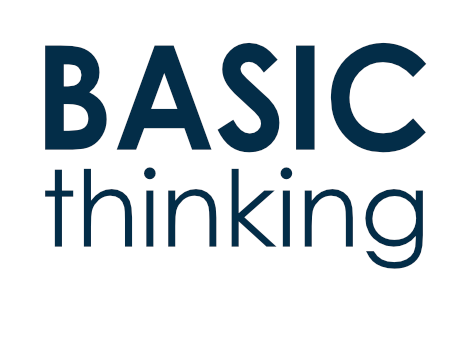bin über einen Link auf Textdepot auf die Seite TechPresident gestoßen, die sich mit dem Thema „How the candidates are using the web, and how the web is using them“ beschäftigt.
Dort ist mir sogleich eine Buchrezension aufgefallen, es geht um ein neues Werk namens “ The Argument: Billionaires, Bloggers, and the Battle to Remake Democratic Politics„. Geschrieben von Matt Bai, einem Reporter des New York Times Magazines. Mal schauen, was man daraus ableiten kann an der Veränderung der politischen Meinungsbildungsprozesse via Internet:
In der Amazon Review heißt es zu den Aktivitäten und meinungsbildenden Kraft des US Demokratischen Bloggerflügels:
The most strident activists and the ones most focused on getting elected are the bloggers such as Markos Zuniga of the DailyKos. They are unyielding in their negative assaults on the Bush administration – and given the administration’s track record, not unjustified. However, being the Karl Roves of the Democrats may win them elections but it does not give them an agenda for governing the country – as I hope Karl Rove himself has found out. Bai finds the bloggers deficient in their understanding of history – say anything that happened before 1998, the Clinton impeachment. He goes on to argue that bloggers view politics as an online wargame. They assault anyone who disagrees with them, even moderate Democrats who have compromised their views with Republicans. The bloggers do not seek to persuade any Republicans, they are after the 50 percent of the populace that does not vote. Why that non-voting electorate would sign up with uncompromising liberal bloggers is still unclear. What Bai and the liberal activist insurgency seem to forget is that politics is the art of the possible. Piecemeal ideas and baby steps are the stuff of legislation. These activists could never achieve power and impose their agenda if they can’t even find common cause with the centrist branch of their own party. They are not only disconnected from history, they are disconnected from reality.
Auf Alternate.org heißt es wiederum:
It is a widespread uprising, which, according to Matt Bai’s new book, The Argument: Billionaires, Bloggers and the Battle to Remake Democratic Politics, is „led by baby boom liberals, wealthy investors and defiant bloggers whose faith in party and country had been severely shaken by 12 years of Republican rule.“
Make no mistake: this is a battle for the soul of the Democratic Party. It’s primarily a fight between the grassroots and the elites. It’s a struggle that has been fought many times in political history, but it’s never been fought at a time when the insurgents could tap into the kind of power represented by the Internet, probably the single-most significant shift in political organizing and communication capacity in decades.
(btw, am Rande erfährt man auch etwas über die Geldeintreibertätigkeiten der politischen „Consultants“:
Democratic consultants are in the enviable position of both earning a percentage of their clients“ ad buys and deciding how much money their clients spend on ads. This is an obviously absurd arrangement; it can hardly be expected to do anything but hurt the effectiveness of Democratic campaigns by building in a clear bias at the margin in favor of large television ad buys instead, as well as a bias at the margin in favor of fundraising against other possible campaign activities. This arrangement has been much criticized in the press (including this magazine) and in the progressive blogosphere, but has proven stubbornly resistant to change, itself a testament to the essentially monopolistic nature of the Democratic consulting trade. On the Republican side, by contrast, there is more competition and openness to new blood, and consultants get flat fees rather than a percentage. Shrum briefly addresses the controversy and dismisses the notion that Democratic consultants should ape their GOP counterparts by observing that Republicans can make up for lost earnings with corporate PR work.
finde ich wichtig, um zu verstehen, was die politische Blogszene in den USA mit bewegt)
weitere Quellen: Are Democrats really so lame?, Matt Bai and the Netroots
Was sind nun Netroots? Dazu TechPresident:
Now, one could probably write a whole book on why the little opinion journals and the big thinkers of the left haven“t succeeded much in moving their ideas further. Indeed, one could profitably tease some answers from between the lines of „The Argument.“? As Bai points out, many of the younger bloggers who are the leaders of the netroots (as opposed to the footsoldiers who read and comment on the blogs, but don“t have the ability to quit their jobs and start new lives as netroots activists) tend to be in the twenties and early thirties, and thus stand a generation apart from the mostly middle-aged lefties and liberals who run big advocacy organizations and edit the opinion journals. The older, more established types have spent most of their adult lives aiming their arguments at elite audiences and thus have generally been slow to recognize and embrace the new energy flowing through the netroots. Often, also, these people simply don“t know each other (though this is steadily changing).
Und die Wikipedia meint in einem langen Artikel, sehr lesenwert, dass:
Netroots is a recent term coined to describe political activism organized through blogs and other online media, including wikis and social network services. The word is a portmanteau of Internet and grassroots, reflecting the technological innovations that set netroots techniques apart from other forms of political participation. In the United States, the term is used mainly in left-leaning circles.
The term necessarily overlaps with the related ideas of e-democracy, open politics and participatory democracy, all of which are somewhat more specific, better defined, and more widely accepted. Netroots outreach is a campaign-oriented activity that uses the web for complementing more traditional campaign activities, such as collaborating with grassroots activism that involves get-out-the-vote and organizing through interconnecting local and regional efforts, such as Meetup, and the netroots-grassroots coalition that propeled the election of Howard Dean to the DNC Chair in January, 2005.
Advocates claim that the essential quality of the netroots is its flatness and inter-linked web connectiveness — that it constitutes communication points that reach out to influence traditional media, but is not directed outward from any one point. Through events like a blogswarm, the netroots displays non-hierarchical and decentralized features.
Spannend, denn meine Annahme hinsichtlich der zunehmenden Vernetzung der Menschen ist, dass sich das selbstverständlich auch auf die Politik bzw. die politische Meinungsbildung sogar ganz gewaltig auswirken wird. Unabhängig davon, ob es nun politische Blogger gibt oder nicht.
btw, muss mich endlich mit Memetik auseinandersetzen, via Werbeblogger.
Hier ein beispielhaftes Videos aus dem feuchten Wunschtraumhöschen der Werber
















